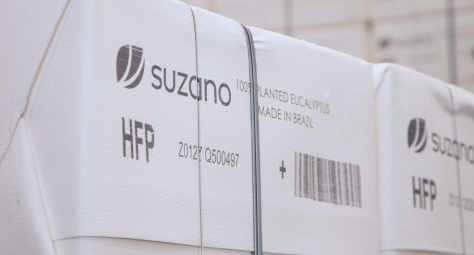sobre o que você deseja falar?


perguntas, sugestões ou problemas técnicos envolvendo a plataforma

informações sobre a empresa


The territory in which Suzano operates is very diverse, both in terms of environmental issues and political and socio-cultural aspects, which requires, in the latter case, a transparent and participatory relationship management model with local communities, Indigenous and traditional peoples. In this sense, the relationship with Indigenous and traditional communities located in the areas of influence of the company's operations is conducted in a culturally appropriate, permanent manner based on trust and mutual respect of rights and interests, according to our Corporate Human Rights Policy and the following principles established by the Corporate Policy for Relations with Indigenous Peoples and Traditional Communities:
To ensure culturally appropriate engagement and maintain an ongoing, transparent, and mutually beneficial relationship, the following guidelines must be considered:
Suzano's socio-environmental investments in Indigenous and traditional communities must be aligned with the company's Corporate Policy on Socio-Environmental Investments and Donations, following these specific guidelines:
Indigenous peoples
Suzano maintains an active, transparent, and culturally appropriate dialogue with Indigenous peoples in its operational areas. This engagement forms the cornerstone of all initiatives the company develops in collaboration with the intervener. To facilitate this, Suzano conducts regular, systematic visits and meetings within Indigenous communities and occasional meetings upon request. These interactions may occur individually or collectively through community movements or councils, ensuring the dissemination of information regarding the company’s actions and projects.
It should be noted that this process is conducted on an ongoing basis, taking into account the social dynamics and unique characteristics of the communities, particularly in a context marked by frequent changes in actors and leaders, internal community divisions, and territorial issues. Through dialogue, an ethical and transparent relationship is established between Suzano and the communities. This approach fosters a deeper understanding of the outcomes achieved, enabling the identification of genuine demands, strengthening engagement and relationships, and supporting the management of both potential and actual impacts arising from the company’s operations.
Below is a list of indigenous communities in Suzano's area of operation.
Bahia Unit
Pataxó ethnic group
Pataxó ethnic group hã hã hãe
Espírito Santo Unit
Guarani ethnic group
Tupiniquim ethnic group
Maranhão Unit
Apinajé ethnic group
Fulni-ô ethnic group
Gavião ethnic group
Guajajara ethnic group
Krikati ethnic group
Mato Grosso do Sul Unit
Ofaié Xavante ethnic group
São Paulo Unit
Guarani ethnic group
Terena ethnic group
2024 Highlights - Indigenous peoples
The indicator "Programs with Indigenous Communities” breaks down actions with Indigenous peoples by geographical region and highlights the main programs and projects focused on historical and cultural appreciation, strengthening relationships, improving the quality of education, and other areas of support for these communities.
Quilombola communities
Suzano's relationship with quilombola communities is most intense in Bahia, Espírito Santo, and São Paulo. Of the 42 remaining quilombo communities identified by the company and registered in its Community Prioritization Matrix, 32 are concentrated north of Espírito Santo. This relationship follows the guidelines established by Suzano's Relationship Policy with Indigenous peoples and traditional communities.
Below is the list of quilombola communities in the company's area of operation.
Bahia Unit
* Based on internal reports and analysis, Suzano identified Quilombo Mutum in its Prioritization Matrix and noted that it is not a community structure under its influence. However, the quilombo is identified on a traditional community map.
Espírito Santo Unit
Mato Grosso do Sul Unit
São Paulo Unit
2024 highlights - quilombola communities
Fishing communities
Suzano's operations influence six fishing communities in Bahia and Espírito Santo. The relationship with these communities is maintained through active and permanent dialogue, aiming to build a positive agenda by structuring actions and investments that promote their socioeconomic development.
To achieve this, our approach is based on increasing social capital and articulating strategic actions that stimulate the autonomy of the fishing communities with a territorial focus. This includes strengthening the culture of cooperation and sustainable practices. The goal is to engage local leaders, government representatives, social movements, private initiatives, NGOs, and other civil society organizations.
Below is a list of the fishing communities in Suzano's area of operation.
Bahia Unit
Espírito Santo Unit
2024 highlights - fishing communities
| 2020 | 2021 | 2022 | 2023 | 2024 | |
|---|---|---|---|---|---|
| overall number | overall number | overall number | overall number | overall number | |
|
Identified cases |
0 |
0 |
0 |
0 |
0 |
| 2020 | 2021 | 2022 | 2023 | 2024 | |||||||||||
|---|---|---|---|---|---|---|---|---|---|---|---|---|---|---|---|
| Initiatives, associations and/or cooperatives involved | People who are direct beneficiaries³ | Families assisted³ | Initiatives, associations and/or cooperatives involved | People who are direct beneficiaries³ | Families assisted³ | Initiatives, associations and/or cooperatives involved | People who are direct beneficiaries³ | Families assisted³ | Initiatives, associations and/or cooperatives involved | People who are direct beneficiaries³ | Families assisted³ | Initiatives, associations and/or cooperatives involved | People who are direct beneficiaries³ | Families assisted³ | |
| overall number | overall number | overall number | overall number | overall number | overall number | overall number | overall number | overall number | overall number | overall number | overall number | overall number | overall number | overall number | |
|
Engagement with fishing communities - Bahia¹ |
8 |
4,595 |
3,037 |
8 |
6,555 |
3,210 |
8 |
6,457 |
3,238 |
8 |
7,950 |
2,340 |
1 |
6,195 |
3,075 |
|
Engagement with fishing communities - Espírito Santo² |
7 |
2,496 |
650 |
4 |
2,325 |
688 |
4 |
2,649 |
759 |
5 |
2,320 |
680 |
4 |
2,630 |
790 |
|
Engagement with fishing communities - total |
15 |
7,091 |
3,687 |
12 |
8,880 |
3,898 |
12 |
9,106 |
3,997 |
13 |
10,270 |
3,020 |
5 |
8,825 |
3,865 |